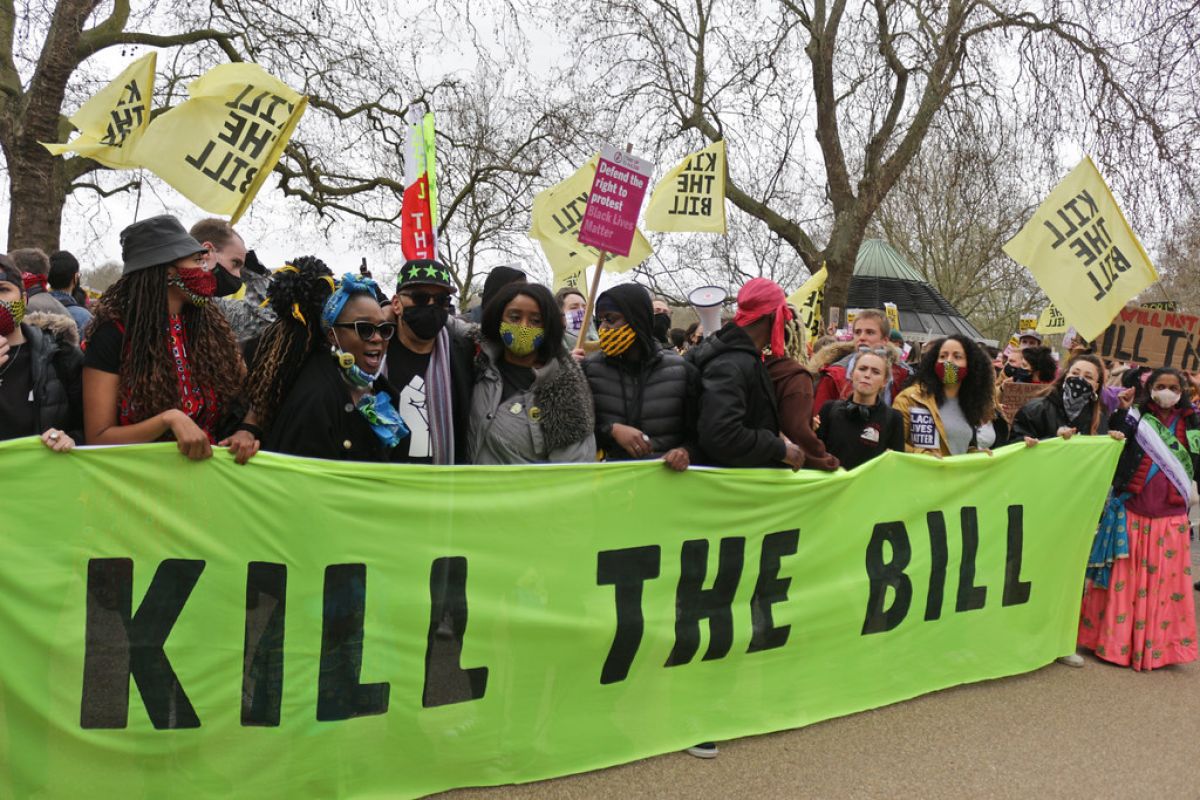(Anti-)protest politics: The fight for a right to protest
By Lucy Wright

China is on the brink of one-man rule, following the hoax re-election of Xi Jinping as general secretary of the ruling Communist Party. The Chinese Parliament allowed Xi to remove the two-term limit for the presidency back in 2018, which would have seen him step down in 2023. Peaceful pro-democracy demonstrations in Hong Kong, featuring satirical images of Xi, conveniently coincided with the conference of Chinese Communist Party elites, which only occurs twice in a decade. The conference involves the reshuffling of powerful positions and a number of secret meetings.
At the same time in Manchester, a senior Chinese diplomat, Zheng Xiyuan, has been accused of what appears to be aggressive involvement in Hong Kong pro-democracy protests that occurred outside the Chinese consulate in Manchester. Zheng was said to have torn down posters of Xi wearing only a crown and underwear. Additionally, Zheng supposedly pulled the hair of a protestor who was then forced inside the consulate grounds and beaten.
When Britain left Hong Kong in 1997, and control was given back to China, the territory’s basic law was established: “one country, two systems”. The law protects fundamental rights in Hong Kong, such as freedom of speech, which is heavily clamped down on in China’s mainland. However, these protections are only valid for 50 years.
Pro-democracy protests ignited in Hong Kong and around the world in 2019 when China attempted to pass the extradition bill. This bill allows the extradition of citizens from Hong Kong to China for their supposed crimes, dangerously eroding freedom of speech in Hong Kong by allowing the criminalisation of politicians, journalists, and academics.
Manchester has a proud rich history of peaceful protest, but anti-protest bills and authoritarian behaviours are on the rise throughout the city, and the country. Conservative MP Alicia Kearns bafflingly claimed, regarding the violence at the protest at the Chinese Consulate, that “we cannot allow the CCP to import their beating of protesters (or) their silencing of free speech”. Yet she stands for a party that is destructively trying to reduce the right to protest. Only when the Tory party stop their rampage against the right to peaceful protest in the UK, will Kearns’ comments resonate well.
The latter-day dismantling of peaceful protest in the UK most prominently started with the Police, Crime, Sentencing and Courts Act. This was embarrassingly sponsored by Deputy Prime Minister Dominic Raab, and Manchester’s very own Baroness Williams of Trafford. The most important aspect of the bill grants police the power to restrict any protest they deem to be “causing serious public disorder”.
Most recently Suella Braverman’s attack on the “Guardian-reading, tofu-eating wokerati” that she blamed for “disruptive protests” is evidence of the government’s lack of tolerance towards protest in the UK. Braverman’s insult was made in defence of the government’s problematic Public Order Bill. The bill marks an attack on peaceful protest: granting police increased stop and search powers, disruption prevention orders, and enshrining protest-related offences into law.
Braverman’s bill makes it clear that the outrage of Conservative MPs towards violence at pro-democracy protests outside the Chinese Consulate is not only superficial but also ironic for a government attempting to criticise Zheng’s actions at a pro-democracy protest. Considering this is the same government that has been led by not one but two undemocratically elected Prime Ministers, Liz Truss and Rishi Sunak, in the past month alone, their comments seem not only ironic but also cynical.
A stark reminder as to why the right to protest is so important can be found close to home, by studying Manchester’s radical and revisionary history. Consider the Peterloo massacre in 1819, the birth of Emmeline Pankhurst, the first suffragette meeting at 62 Nelson Street, and the University’s own recent student occupation of the Samuel Alexander building – it is protest that is at the soul of our city.
After all, it is rare to be able to walk through St Peter’s Square and not see a protest. For that reason, it is deplorable that such anti-protest movements can take place so close to home. It is also hypocritical for MPs in the UK Government to condemn the anti-protest actions committed by Zheng yet simultaneously reduce the right to protest through stricter and in some parts unnecessary legislation against peaceful protest.
Peaceful protest is not a state-like attribute and should not be controlled by the state. Those who peacefully take to the street for change should not be criminalised. Combined with the already unsurprising democratic backsliding of the United Kingdom following 12 years of Tory leadership, it is at this crucial time that we must stand against the absurd anti-protest behaviours that were committed outside the Chinese consulate, yet also recognise the irony in the government’s condemnation of said events despite their anti-protest legislation. After all, it is the right to peaceful protest that lies at the heart and soul of Manchester.







